QuestionI have two oscars that we have recently had to seperate. One was injured, and we thought he was going to be on the road to recovery. In the last couple of days, his scales are peeling off in almost a blistering kind of way. Most of this is happening on the crown of his head. I also noticed there are like tiny air bubble,(not ick) covering most of him. We treated with a little salt and melafix. What else can we do, and what is it?
AnswerHi Stephanie,
While people do attempt to keep more than one oscar to a tank, it's challenging to say the least. First off, the sheer tank size you need is staggering - at minimum 90 gallons. These fish get the size of a young bass! Secondly, oscars are almost impossible to sex - and if you end up with 2 males, there could be problems down the line. Even a male and a female are not necessarily guaranteed to be amicable. While oscars are relatively peaceful (they always end up the losers when placed in a typical aggressive American cichlid tank with Jack Dempseys, Green Terrors, etc.), they are still powerful beasts with their huge jaws that are made for crushing the shells of crustaceans.
I'm glad you separated them, but what kind of quarantine/hospital container did you put the hurt oscar into? They need a roomy place to rest and recuperate. It depends on the size of the oscar, of course, but I recommend putting him into a minimum of a 30 gallon Rubbermaid container, which will run you about $15, providing some aeration or ideally, filtration (without carbon) and medicating with a broad spectrum antibiotic such as Maracyn. Salt and Melafix are not going to help except with the mildest of scrapes - if this oscar sustained any kind of severe damage (more than just the loss of a few scales or a couple of nips) then you need to step up to real antibiotics. Melafix is just tea tree oil that has some antibacterial properties, and salt doesn't do anything except encourage slime coat by irritating the skin, so neither is helpful here. The blisters are probably just that, and the peeling skin is evidence of a bacterial infection. If the Maracyn by itself doesn't help, combine it with Maracyn 2 - these together will treat both gram negative and gram positive bacteria, so both have you covered on all fronts....but you have to act fast!
Since oscars are so messy, you are going to have to do some gravel vacuuming while he is in quarantine to keep hygiene up. A sick fish gets better much faster and more reliably in clean water. The reason you can't add carbon to the filter in quarantine is that it absorbs the medication, but polyester filter floss or foam sponges will be fine. Just don't use "cartridges" or run carbon for now.
I would recommend feeding peas with the skins pinched off (unsalted canned peas, or defrosted frozen peas) instead of flakes or pellets because this will keep your water quality up. Flake and pellet foods can be highly polluting depending on the protein content, and the last thing you want to do is get an ammonia spike in quarantine.
Use a test kit to ensure that ammonia and nitrites stay 0 ppm in the quarantine tank or container - if you see even the slightest spike, do a water change. Don't worry about removing some of the medication, you can always add back what you took out with the water change.
Oscars are very prone to hole in the head disease. No one is positive about the root cause, but it's probably a nutritional deficiency, and water quality (especially persistent high nitrates) most likely plays a role also. Oscars thrive on fresh, crunchy foods like defrosted bits of frozen seafood (mussels, clams, oysters) and go nuts for crayfish, shrimp, and insects like roaches, crickets, and moths. Earthworms are another favorite. If this kind of diet grosses you out, invest extra for a high quality, 100% nutritionally complete pellet food such as New Life Spectrum or Dainichi brand foods. I have helped people with many oscar issues - they often fail to thrive because of an unbalanced diet. They just seem to need better food than what is ordinarily provided for them. It doesn't help that due to being so huge and messy, it's hard to keep nitrates low - and high nitrates are hard on cichlids, who as a breed demand very clean water. Nitrates under 20 ppm is best, and of course, 0 ppm ammonia/nitrite.
I hope that helps! Good luck making him well again.
Nicole

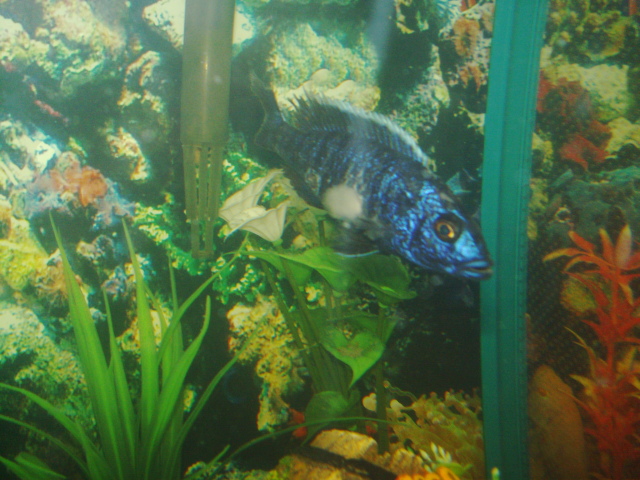 cichlid infection?
Question
Cichlid injured
one of my cichlid fish was bul
cichlid infection?
Question
Cichlid injured
one of my cichlid fish was bul
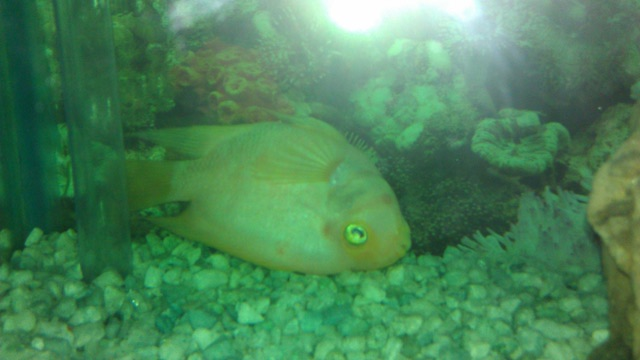 my 3 year old parrot stays upside down in the bottom of the tank.
Question
parrot laying upside d
Hello,
My parro
my 3 year old parrot stays upside down in the bottom of the tank.
Question
parrot laying upside d
Hello,
My parro
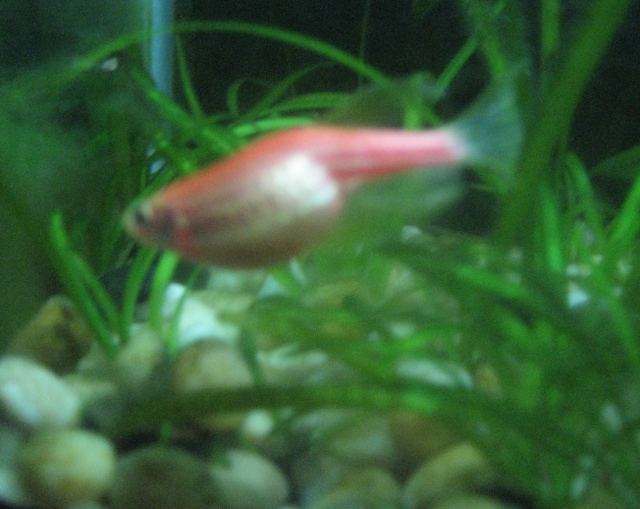 Red Danio with a large belly
Question
Red Danio with a large
Hi there,
My fis
Red Danio with a large belly
Question
Red Danio with a large
Hi there,
My fis
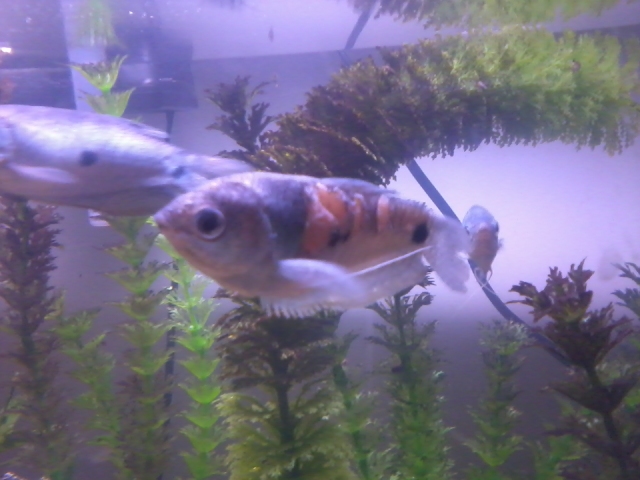 My gourami is sick!
Question
Deep flesh sores on Go
I have 5 gourami
My gourami is sick!
Question
Deep flesh sores on Go
I have 5 gourami
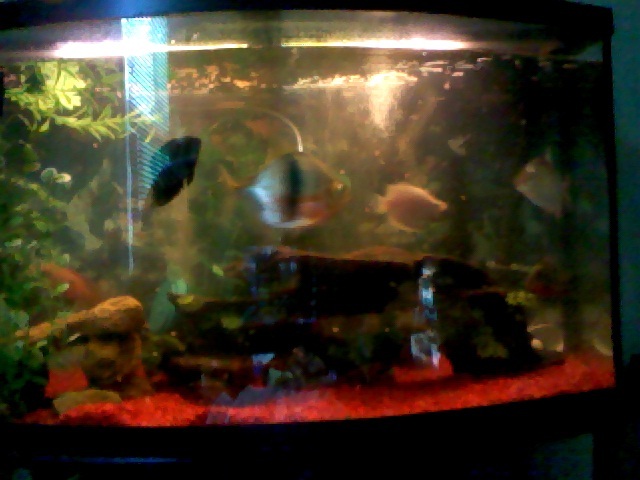 is my tank over stocked
Question
my tank
is my tank over stocked ...
1 jewel ci
is my tank over stocked
Question
my tank
is my tank over stocked ...
1 jewel ci